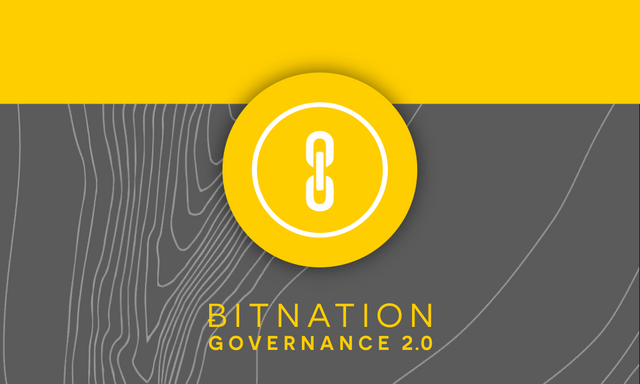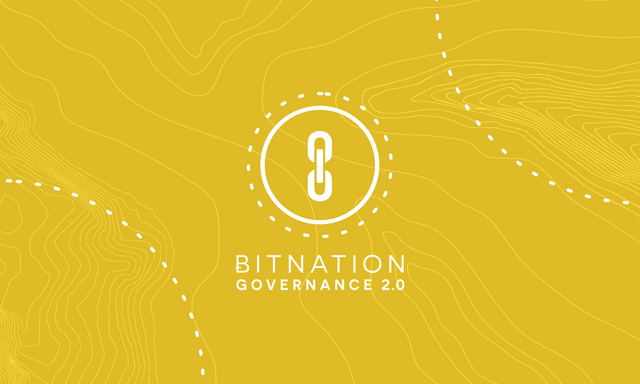Decentralization to the Rescue – Bitnation: Why Opt-in Governance is a Necessity and what Bitnation Brings to the Table (2/4)

Governments – current situation
National borders have initially been decided by the reach of weapons, or rather by the ability to defend the territory that has been “proclaimed” as the national territory. The situation today isn’t different, it’s just that the world has become much more complex, therefore the nations have to operate with bigger set of variables when “preserving power”. The whitepaper even claims that after the World War 2 nation state was ossified as the only permissible sovereign governance. I wasn’t able to double-check whether the statement is correct, but if it was, it would make the current situation even more pathetic.
As I already said in Pt.1, every single inch of habitable space on the planet earth is already annexed by the current governments. There are though nations that found a work-around. They basically transitioned into borderless nations – Jews for instance. They are a proof-of-concept that even without new technologies, such a “borderless existence” was imaginable and doable even decades ago. By utilizing new technologies, such a behaviour could be much easier.
The transition is slowly happening behind the curtain even now. The transition is only accelerated by the world-wide incompetence of governments to react to new technologies, adapt and solve current problems. They simply fail to comprehend the complexity of a networked world and are failing to address both our local and global challenges. The people actually recognize the problem and are gradually losing trust in governments as illustrated in this graph. Less than 20% is a critical threshold calling for a change – wouldn’t you say?

“Global governance models contain within them the seeds of perpetual conflict. Even if democratically governed, a worldwide tyranny of the majority will leave many billions disaffected and the monolithic global state will increasingly need to use coercion to enforce its policy on this vast minority of unwilling citizens.” [1]
We lack the answer, but we’ve found the path
Creation of an effective governance model proved to be one of the hardest tasks for humanity as of yet. Despite great exerted effort of many individuals a governance model that would be far superior to the old and established ones haven’t been created yet. Truth be told VAST MAJORITY of all the humanity is satisfied with one of the lamest statements of all times - “Democracy is the worst form of government, except for all the others.” It’s like saying “hey the system doesn’t work but I don’t care about how I could contribute to improve it, for this system is better than the others we’ve already tried”.
Decentralized platforms have proved in the past decade that they are far superior in terms of innovating, adapting and repairing the flaws that are uncovered to the government. In fact it’s probably safe to say that the speed and effectivity of decentralized systems will never be matched by the ancient government models. Humanity has for the first time in its history found a lead, which path could be “the right one” when battling the entropy of complex systems. We have uncovered governance models, where we got rid of the flaw, where handful of people had to fool themselves that they are the ones that are fit to comprehend the whole complexity of the world and rule by force (“hidden” or “right in your face”…doesn’t really matter). Decentralized platforms, for the first time in mankind’s history, have provided us with the possibility to engage in TRUE “bottom-up” building mechanisms, where individuals find their own ways how to contribute to the creation of the governance models. Nevertheless, even decentralized sphere is still miles away from “perfect” governance models even for small communities.
Bitnation and its contribution

Bitnation answers with its Pangea jurisdiction. Its aim isn’t to provide the perfect governance model, for it cannot exist anyway. Instead its goal is to provide a suitable environment, where governance models could compete against each other in order to slowly work TOWARDS the “best” governance models for individual communities. It relies on a semi-automated reputation. Favourable services will climb the ranks and attract more citizens.
Pangea jurisdiction brings “Codes of Law”. Analog and digital worlds are very different. Whereas law refers to an analog world and its legal institutions that are enforceable, rules refer to basically anything in a digital world. [2] Through Codes of law, users can write their own rules, upload templates for smart contracts, use existing ones or agree to adhere some of the existing laws. This all can be done and signed swiftly and in a user-friendly chat interface. All the rules in the system are nomic, meaning they can be modified and changed to suit the needs of the “players” if the consensus is reached. Thus an ever-present innovation is ensured.
Whenever there is an agreement that didn’t go according to a plan, an arbitrator can be chosen prior to a dispute or when it occurs. Users can choose from individual arbitrators, crowd juries, or they simply have to follow a smart contract’s “decision” if smart contract was the agreement that has been signed and the dispute is quantifiable.
The strongest and most important part of the platform is the fact that every entity has its own non-transferable reputation score. All citizens that are either utilizing the rules, have interacted with the citizen or are part of the community can vote for those entities, thus contributing to their overall reputation score. The reputation tokens provide the best incentives for the models, rules and individuals to behave and do their job as best as they could for otherwise they would be easily crushed by competition. Since all the rules are nomic, if they received bad reputation and feedback, they could evolve, driving the overall quality of the services as high as possible. The same applies to human users, since they are “nomic” by nature. The rating can also be done anonymously in order to hide oneself from a backfiring revenge.
Table of content
- Introduction
- Why opt-in governance is a necessity and what Bitnation brings to the table
- Bitnation technology
- PAT reputation sub-tokens
Sources
Additional sources
Twitter: https://twitter.com/@MyBitnation
Facebook: https://www.facebook.com/MyBitnation
Steemit: https://steemit.com/@bitnation
Telegram: https://t.me/PangeaBitnation
Project Website: https://tse.bitnation.co/
BitNation Blog: https://blog.bitnation.co/
**DISCLAIMER**
The information contained within this post shall not be taken as a financial advice. I am not a financial advisor and none of your investment decisions should be carried out based on any information presented here. You can lose all of your money by investing. The information presented in this article is for educational and entertainment purposes only.

Hi @fingersik!
Your post was upvoted by @steem-ua, new Steem dApp, using UserAuthority for algorithmic post curation!
Your UA account score is currently 4.769 which ranks you at #1404 across all Steem accounts.
Your rank has dropped 6 places in the last three days (old rank 1398).
In our last Algorithmic Curation Round, consisting of 254 contributions, your post is ranked at #213.
Evaluation of your UA score:
Feel free to join our @steem-ua Discord server